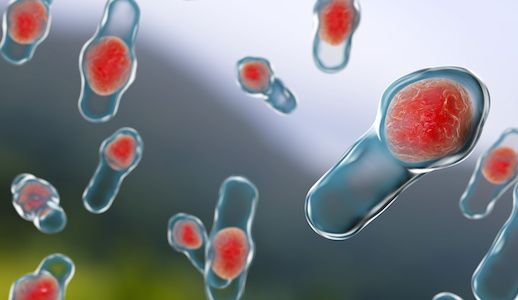Researchers Track Evolution of FMT to Treat C. difficile
How far can fecal microbial transplants take the cure for C. difficile and other diseases?

The use of stool — “the ultimate probiotic” – for fecal microbial transplant (FMT) is the first step in the journey to curing recurrent Clostridium difficile (C. difficile) infections, according to a recent review.
Researcher Lawrence J. Brandt, MD, from Montefiore Medical Center in New York, examined the FMT process and its efficacy in order to map the trends and timeline of a cure for C. difficile. He said researchers are witnessing a "paradigm shift in the way our body’s microbial organisms are viewed and even studied.”
Instead of a good-and-bad bacteria dichotomy, the human body consists of various microbiota, such as bacteria, archaea, viruses and funghi, Brandt explained.
In the past, FMT was only considered if a donor underwent medical review, physical examination, and was found to not have a history of Irratable Bowel Disease (IBD), Irratable Bowel Syndrome, diarrhea or constipation, autoimmune or atopic disease, malignancy, neurologic disorder, chronic pain syndrome, or if they had used antibiotics or immunosuppressant medications.
These methods of stool donations and preparation may soon change to make FMT more accessible, Brandt wrote.
FMT efficacy rates are typically based on single center case studies and/or case reports. But, after meta-analysis of such reports, overall cure rates for recurrent C. difficile infection are estimated to be an average of 90% with a range of 75% to 100%, Brandt said. Across the board, FMT shows few adverse effects and even fewer severe adverse effects.
The most common adverse effects include abdominal discomfort (such as pain, diarrhea, flatulence, bloating and cramps). Rarely, fevers were noted, and severe adverse effects attributable to FMT included death, severe infections, and relapse or worsening of IBD.
A patient is in need of treatment with FMT if they have recurrent or refractory C. difficile infection, according to present guidelines. Recent literature is also exploring the depths to which FMT can aid other gastrointestinal disorders, including ulcerative colitis, Crohn’s, IBS, and constipation.
However, as association does not prove causation, more data is needed before FMT can be recommended as treatment for any of those disorders, Brandt added.
FMT is also being studied as a combatant of obesity, insulin resistance, and metabolic syndrome; there are even hints of isolated cases involving Parkinson’s, fibromyalgia, chronic fatigue syndrome, multiple sclerosis, and autism spectrum disorders. Researchers also want to explore the brain-gut axis more, to see if there is a brain-gut-microbiota axis, which could in turn foster a connection between FMT and neuropsychiatric disease.
“I was pleasantly surprised when a FMT cured a patient of mine with recurrent C. difficile when I first did it in 1991,” Dr. Brand said. “Since then I have only been continually amazed at the evolution of the microbiota story and the increasing recognition of the roles our intestinal micro-organisms play in regulating our daily health.”
The paper, “Fecal Microbiota Therapy with a Focus on C. difficile Infection,” was published online in the journal Psychosomatic Medicine.
Related Coverage
Playground Sandboxes Susceptible to C. difficile Transmission
Calcium Could Usher In Next Breakthrough in C. difficile Treatment
Cost Appropriate Treatment with Oral Vancomycin for C. difficile Infection